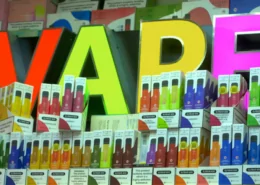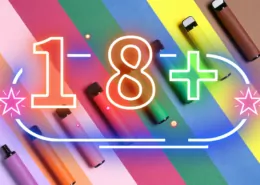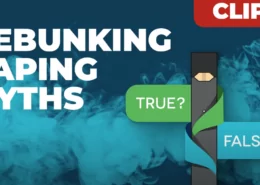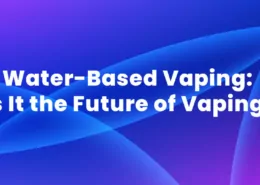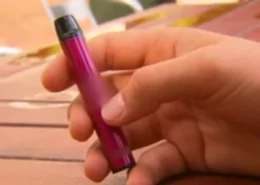Quebec’s Move to Ban Flavoured Vape Products
The Quebec government, led by Health Minister Christian Dube, has announced its intention to introduce legislation in the coming weeks that would prohibit the sale of flavoured vape products, with the exception of tobacco-flavoured items. This move aims to address the concerning increase in vaping among young people in the province. In this article, we will delve into the specifics of the proposed amendments to the Tobacco Control Act, the implications for businesses, and how this decision compares to other Canadian provinces.
Proposed Amendments to the Tobacco Control Act
According to the Gazette Officielle du Quebec, the proposed amendments will seek to ban selling or distributing:
- Tobacco products containing flavours or aromas other than tobacco
- Electronic cigarettes or similar devices, including components and accessories
Furthermore, the new regulation will also:
- Prohibit e-cigarette manufacturers from selling products that do not comply with nicotine concentration (20 milligrams per milliliter) and product shape standards
- Restrict the sale of products in toy, food, animal, or character shapes that appeal to minors
- Limit the capacity of tanks and capsules to 2 milliliters and the maximum volume of refill containers for vaping liquids to 30 milliliters
Support for the Proposed Regulation
Quebec’s decision is supported by the special intervention group on vaping, which consists of representatives from various government departments, agencies, the Quebec Institute of Public Health (INSPQ), clinicians, and public health directors. They have recommended these measures in light of the alarming increase in vaping among youth.
Youth Vaping: A Rising Concern
Data provided by the Quebec government indicates that vaping among young people has seen a significant increase. In a span of six years, the proportion of youth who have smoked in the 30 days preceding a survey has grown fivefold, from 4% in 2013 to 21% in 2019.
Impact on Businesses and the Vaping Industry
The proposed regulation is expected to have financial consequences for businesses that rely on the sale of vaping products, particularly in terms of reduced turnover and potential job losses. Specialized vaping stores may be hit the hardest, while convenience stores and gas stations selling a variety of other products could experience a lesser impact.
The Anti-Tobacco Coalition’s Stance
Recently, specialized vape stores attracted criticism from the anti-tobacco coalition for selling candy and other treats, allowing minors to enter their establishments. Quebec law prohibits minors from entering specialized vaping stores; however, by selling sweet treats, these stores fall under convenience store regulations, permitting kids under 18 to enter. The coalition argues that candy flavours in vape products appeal to young people.
Comparison with Other Canadian Provinces
Several Canadian provinces have already taken action against flavoured vape products. Nova Scotia, PEI, New Brunswick, and the Northwest Territories have banned all e-cigarette flavours except tobacco. In BC, Ontario, and Saskatchewan, flavoured vaping liquids are restricted to specialty vape shops.
Conclusion
Quebec’s decision to prohibit the sale of flavoured vape products comes in response to the growing concern of youth vaping. The proposed regulation could have a significant impact on businesses in the vaping industry, but ultimately aims to protect young people from the potential dangers of e-cigarettes. As other provinces have already implemented similar measures, Quebec’s move aligns with a growing trend in Canada to curb the appeal of vaping products for minors.
Frequently Asked Questions
- What is the main objective of Quebec’s proposed regulation? The main objective is to address the growing concern of youth vaping by prohibiting the sale of flavoured vape products, except for tobacco-flavoured items.
- How will the new regulation affect e-cigarette manufacturers? E-cigarette manufacturers will be prohibited from selling products that do not comply with nicotine concentration (20 milligrams per milliliter) and product shape standards.
- What other restrictions are included in the proposed regulation? The sale of products in toy, food, animal, or character shapes that appeal to minors will be restricted. Additionally, the capacity of tanks and capsules will be limited to 2 milliliters, and the maximum volume of refill containers for vaping liquids will be capped at 30 milliliters.
- How does Quebec’s approach to flavoured vape products compare to other Canadian provinces? Quebec’s proposed regulation is similar to measures taken by Nova Scotia, PEI, New Brunswick, and the Northwest Territories, which have banned all e-cigarette flavours except tobacco. In BC, Ontario, and Saskatchewan, flavoured vaping liquids are restricted to specialty vape shops.
- What is the potential impact of this regulation on businesses? Businesses that rely on the sale of vaping products, particularly specialized vape stores, may face reduced turnover and job losses. However, convenience stores and gas stations selling a variety of other products could experience a lesser impact.
- Pakistan Halts Vape Crackdown Pending Legislation - July 4, 2025
- Wisconsin New Law Banning Sale of Most Vape Products - July 4, 2025
- Vaping Laws in Oklahoma: A Comprehensive Guide for 2025 - July 3, 2025


